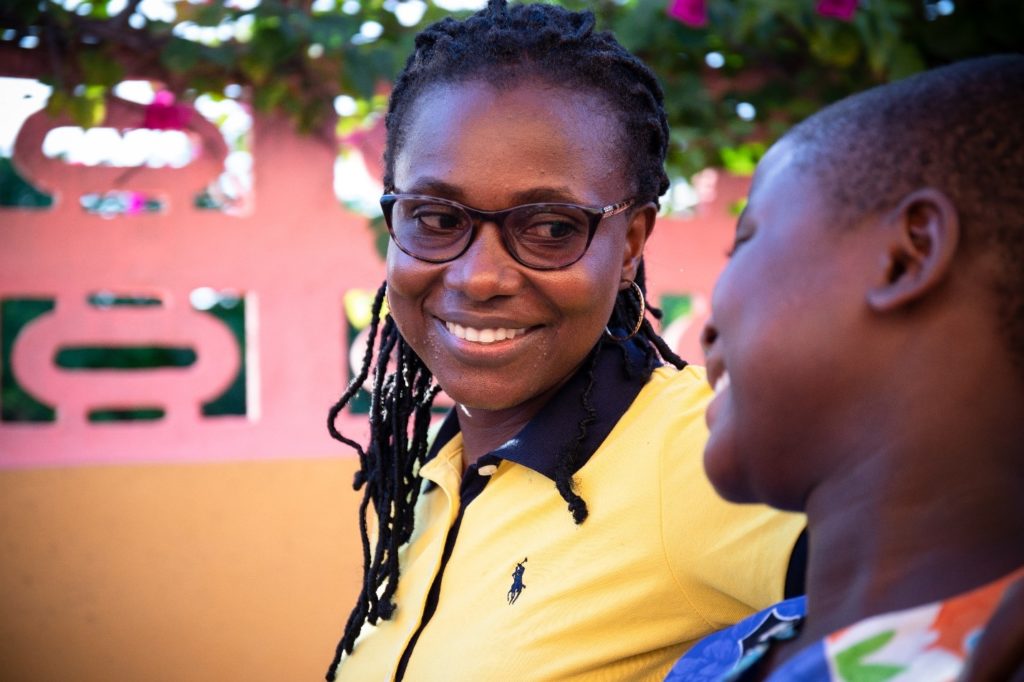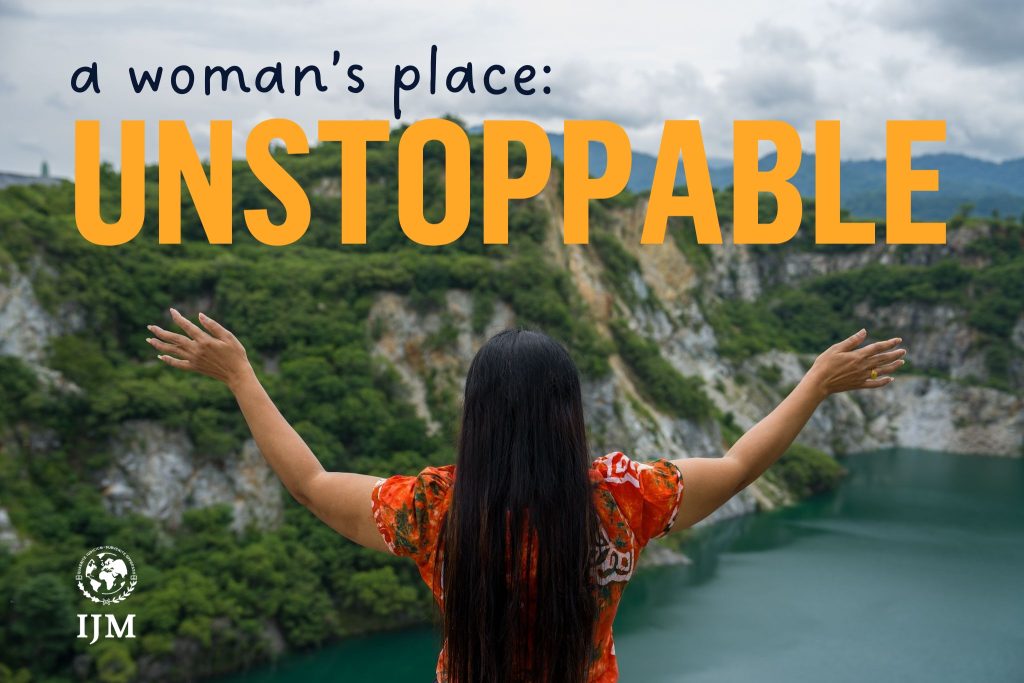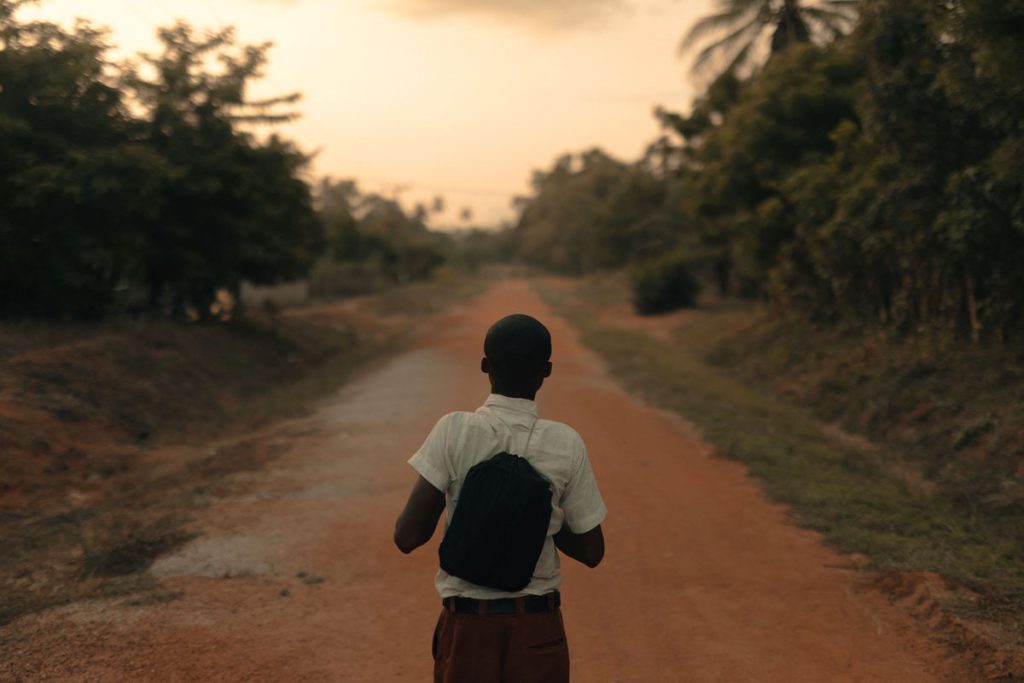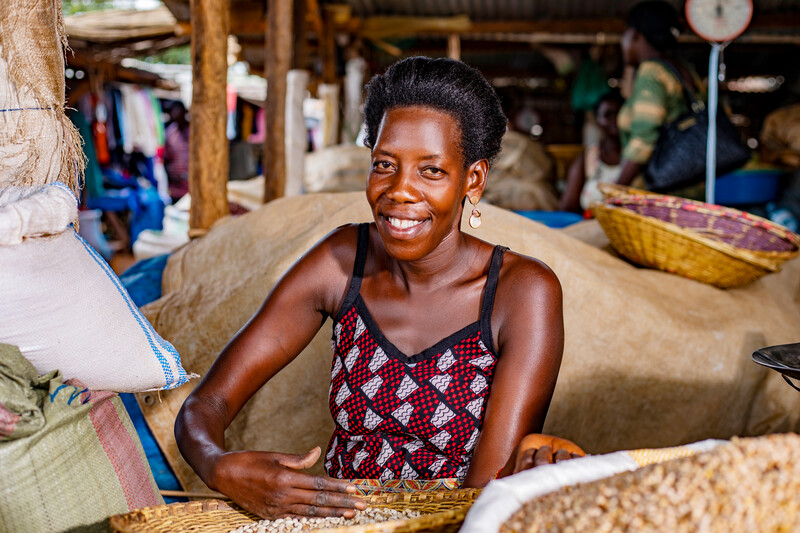
Q: How would you describe Esther*?
A: I saw her to be somebody who was full of life and have some hope for herself, and was confident and sure she could rise to a certain level in life. But at the same time, I saw her as somebody who had suffered quite some traumatic experiences and would need a lot of support to be able to overcome those, if only she is able to get to the position in life that she so desires.
Q: What was Esther like when she was first rescued?
A: Esther, the first time we met her when she was rescued, she was really, really, really traumatised. She cried [for the] most part of that first night, she wouldn’t open up to anybody. But by the second, third day, based on the interactions that we had with her, her words that she spoke gave me an understanding that God was doing something with her, because right from that point she started talking about praying even for the team. Telling us how much she knows that even though things are difficult for her, having been out, having been rescued, now understanding what the issues are, how she feels her life would be better.
Q: How did she feel during the rescue operation?
A: I wasn’t on a boat, but the story I heard from the team that was on the boat was that she cried all through. And then when she got [to] the processing centre, when they received her, it was the same story, she was gloomy the whole evening, she cried, until I got her to have dinner. We changed clothes for her, and now she started seeing that things are a bit better, [that] it’s not like somebody was going to abuse her. And so by the next morning she was all smiles … She was all over, went to the kitchen to help the kitchen staff prepare breakfast. Because she was relaxed by the morning. But the evening that she got there, she was … terrible, broken.
Q: What about the day after the rescue?
A: So I went, and when she saw me, she run to embrace me, and at that point I knew that things were working out for her, she was beginning to see the realities of what she was going through there, and what life we were seeking to provide to her.
Q: How do you explain the drastic change in her attitude?
A: At that time [of the rescue] she wasn’t so sure what was happening, because they [the slavemasters] have told them stories about the police and whoever was coming to rescue, [that] those are the people who are coming to hurt them. So, they [the children] were not sure whether it was safer for them to come, or if it was safer for them to rather be in the bush, so they just have to obey what their masters have asked them to do. So even at the point where they were rescued, they didn’t know what was happening to them. “We’re already in one situation, we’re suffering here, but at least now we’ve gotten used to that … Now the other people are coming to take us, strangers, we don’t even know them. What is going to happen to us?”
Q: What does it usually look like when children are rescued from Lake Volta?
A: Normally the first thing [is they are] crying and yelling. They don’t know you, you are a stranger. Now their masters are more like a family to them rather than you, and they don’t understand what’s going on. Even if you try to explain something to them in that states, it’s difficult for them to comprehend …
But normally what helps is that we make sure there are social welfare officers with them on the ground, so throughout the travel, the moment they get them on the boat … So, during that process of movement, they use opportunity to come and help, to calm them down, explain to them extensively why they are taking them out, where they are taking them to. The need for them to relax and be sure that everything will be done for their safety. And also because of the support, immediate crisis support our teams that have presented to them, then they come to see that, oh, we’ve been here for four years, five years, six years, we’ve never benefited from this. So if somebody is coming now, and even immediately after taking me, their first question is, “Are they eating?” and they try to provide you something to eat. If they see you are not wearing dresses, they give you something to keep you warm and things like that, and it means they see you would have good intentions.
So that sometimes help[s] to calm the situation, but definitely [it will] take, like, a day, two, three. When [they] gets [sic] to processing centre … you are building rapport for them to get to know why they are there, get to understand, and then get to trust you to even be able to share their stories. And by the time we are getting to a shelter, they are more relaxed and more ready to go with you. It’s only a few instances that you have some of the children who are agitated for a longer period, and justifiably so because their masters by then would have … been coaching them as to what to say, what not to say, actions to put up and all that. So, because we have done this over time, we know some of these difficulties as well so we manage them, and then once they get to understand the reasons and begin to see the realities, they calm down.
Q: Tell us about some of the dangers faced by trafficked children.
A: It’s usually very dangerous, they’ve given testimonies of instances where some of their colleagues get drowned in the lake because they don’t know how to swim, for example. Even some who know how to swim get in there to untangle nets, and they never come back. That’s a big danger in the kind of work that they do. Most of them are often even subjected to physical abuse because they are not doing much, as expected of them. They are beaten with the rope. I don’t know if you’ve seen the size of the ropes that they use in their work before, quite heavy, and they use that to beat them most of the time. They use the paddle, which is very big and broad, to hit them, to be able to do much, as is expected of … as their boat masters expects of them. Some of them, in the process, get seriously hit, but even in those situations, no medical attention is provided because you are [being beaten] as a result of your lazy work. So, they have to struggle to heal on their own. Medical situations are poor, there are not even hospitals in most of these communities. And nobody would even bother taking you to hospital, they just give you some local concoctions to take, the herbs to drink, and whether you are fine or not, the next morning you have to be on the go, get back there and work. That’s why you are here.
Q: Can you tell us a bit about Geoffrey*?
A: Geoffrey [is] a very intelligent boy. I think that is the best way I can use to describe him, very intelligent, and somebody that is very determined .I think he has a good heart and … He has a dream, so even back on the lake he was always finding ways how he can one day get out of a situation to pursue his dreams. I think he’s not a selfish person, because if he was, once he was taken out of that situation, [he could have just gone] back to his family and forget about every other person, but immediately he got out, he says, “Oh, there are more people there, and these are the names. If you can, can you follow-up on them?”
Perpetual is IJM Ghana’s Aftercare Casework Manager. This Q&A is based on a transcript of a verbal interview with Perpetual.
Learn more about Esther’s story here.
*Pseudonyms have been used to protect the identity of survivors and/or the integrity of an ongoing court case.




